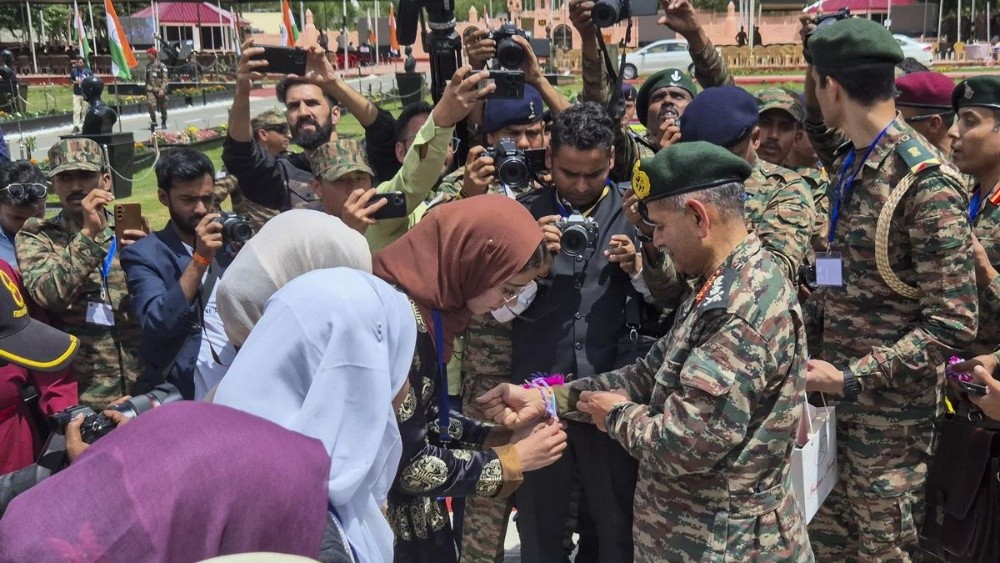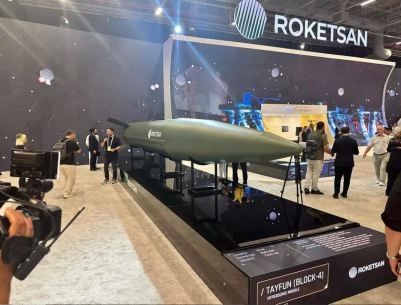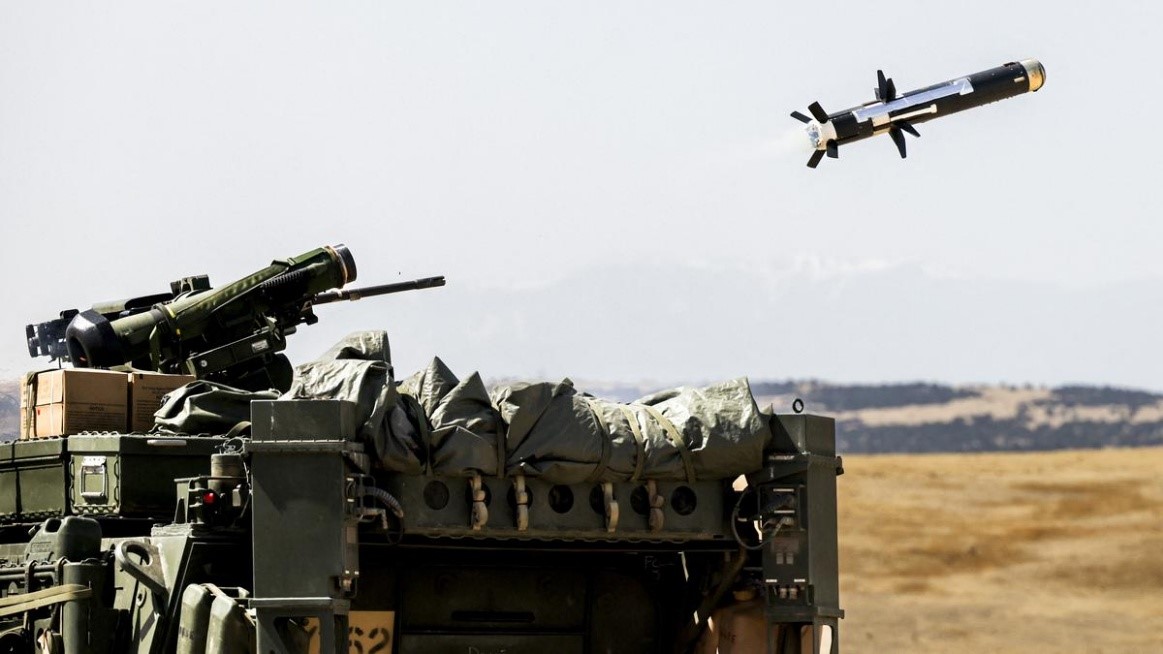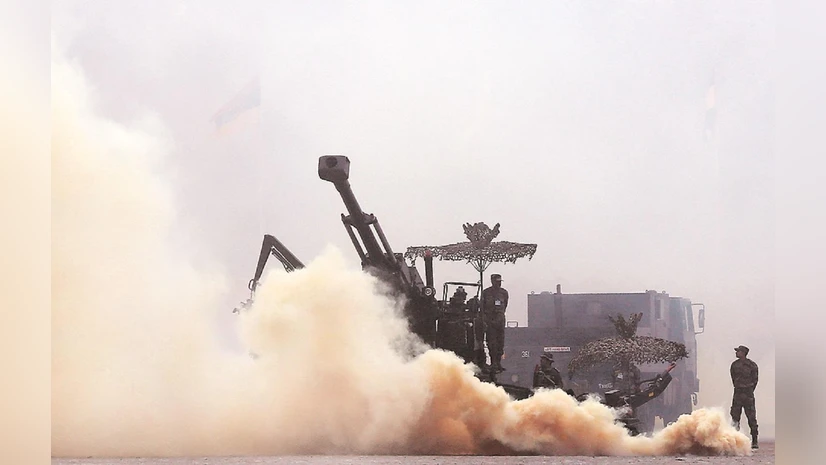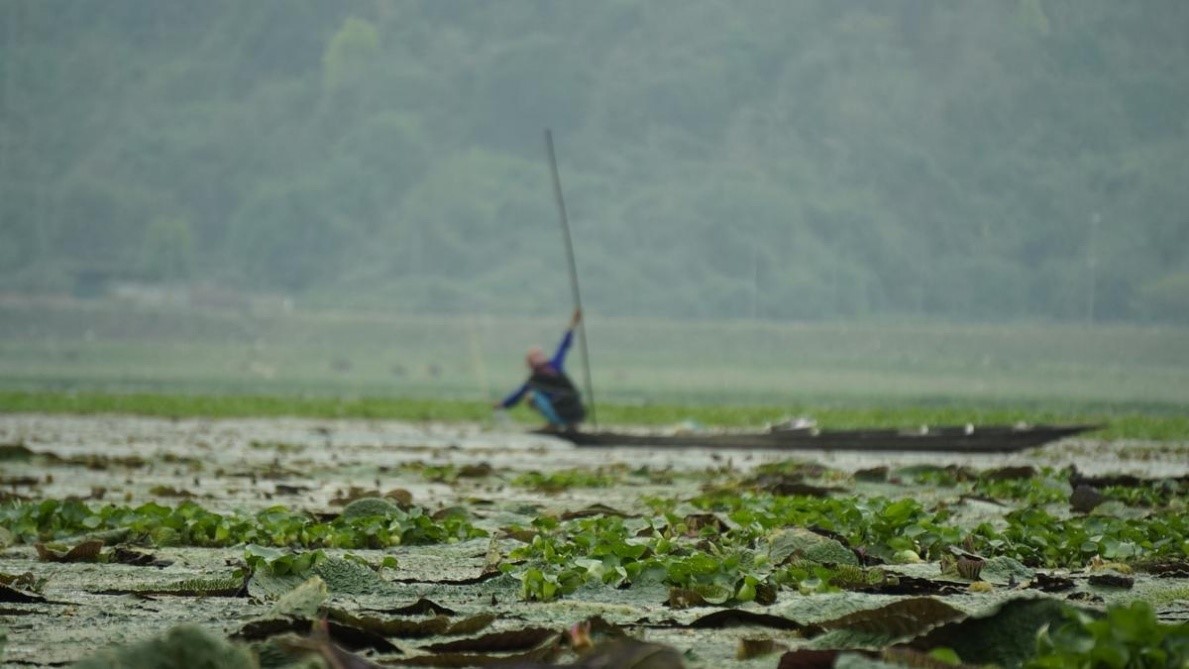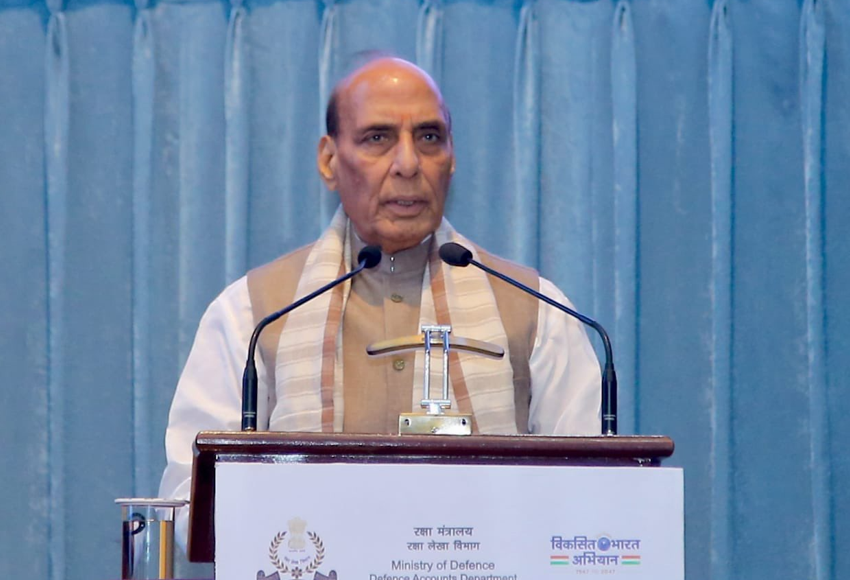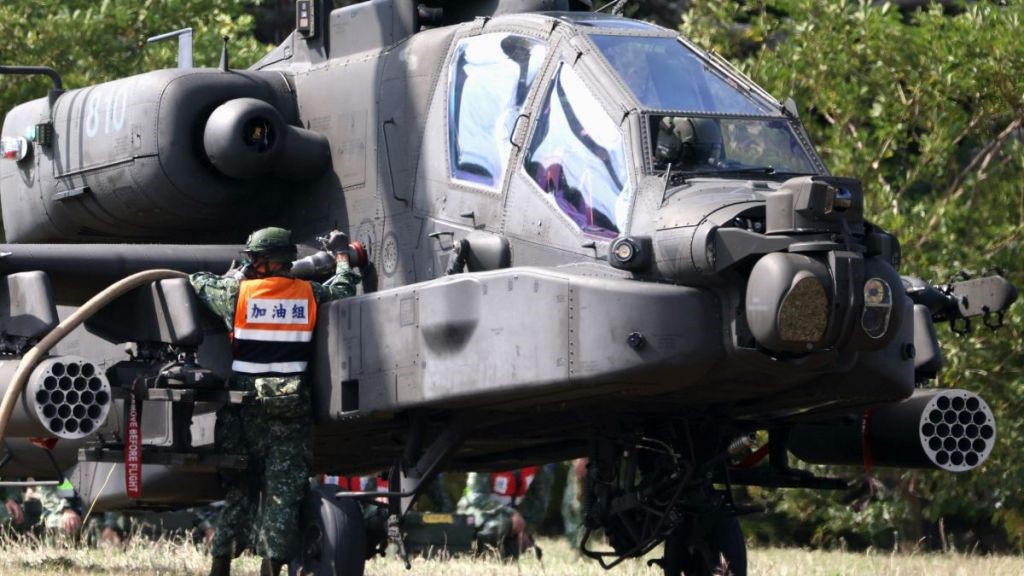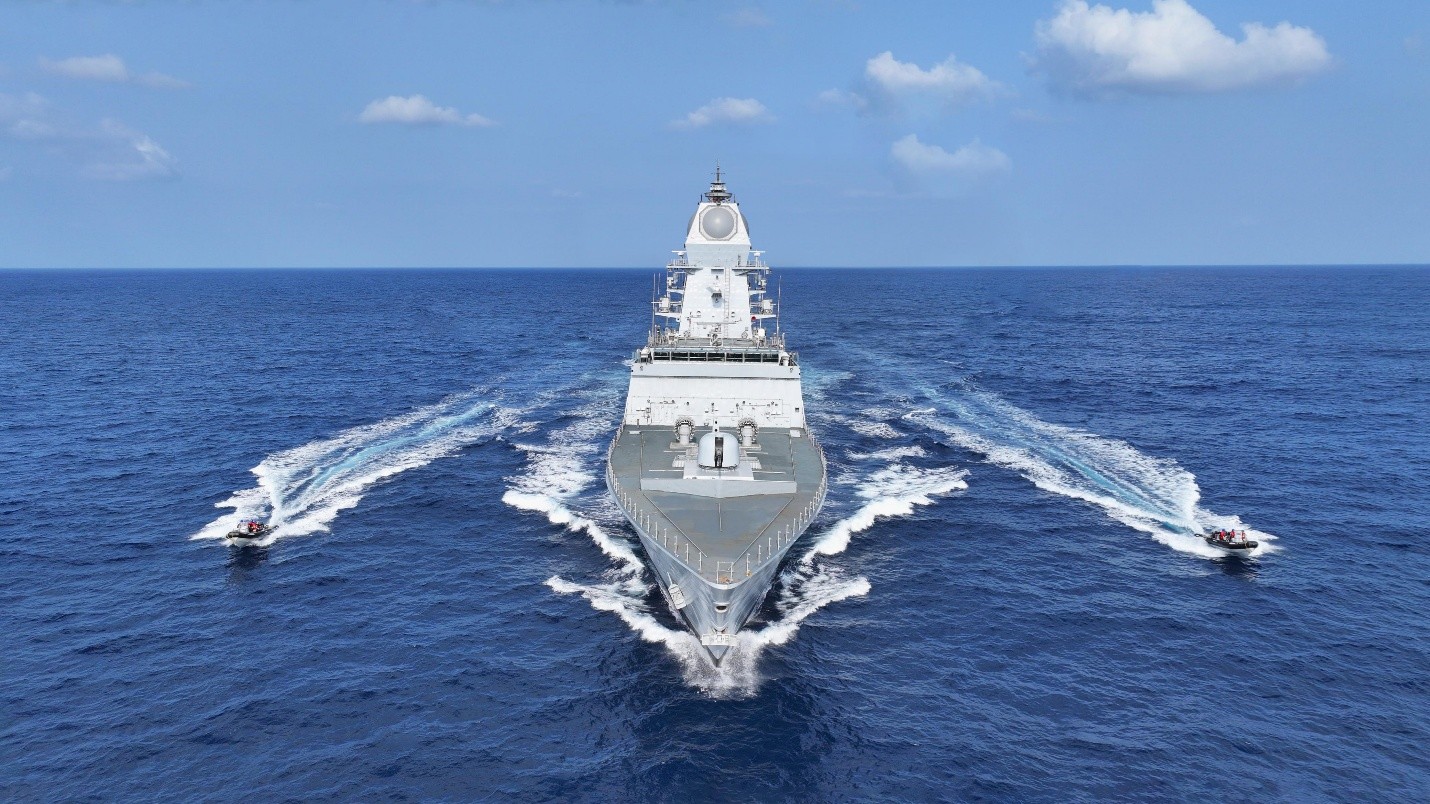Description

Source: FinancialExpress
Disclaimer: Copyright infringement not intended
Context
- 10th Edition (2024):Scheduled from August 12 to 25 at Maduruoya in Sri Lanka’s Southern Province.
-
- Participants:120 soldiers from the Indian Army’s Rajputana Rifles and an equal number from the Sri Lankan Army’s Gajaba Regiment.
Details
Exercise Mitra Shakti
- Nature:Annual joint military exercise
- Inception:2012
- Purpose:Primarily focused on counter-insurgency and counter-terrorism operations in semi-urban environments.
- The focus of this year’s exercise is on joint operations in semi-urban environments, aligning with Chapter VII of the United Nations Charter, which deals with actions regarding threats to peace and security.
- The previous edition of “Mitra Shakti” took place in Pune, India, at the Aundh Military Station, with troops from the Maratha Light Infantry Regiment participating.
- Phases:
-
- Phase 1:Static display and demonstration of weapons and equipment by both armies.
- Phase 2:Training sessions including lectures, practical exercises, and night training.
- Phase 3:Joint tactical operations in simulated combat conditions.
- Phase 4:Concludes with sports competitions to foster camaraderie among troops.
India-Sri Lanka Relations
Historical Context
- Colonial Legacy: Both India and Sri Lanka share a common colonial past under British rule. India gained independence in 1947, while Sri Lanka followed in 1948. The two countries have since maintained strong diplomatic relations.
- Cultural and Religious Ties: The relationship is deeply rooted in shared cultural, religious, and linguistic ties dating back over 2,500 years. Both nations have significant Buddhist and Hindu communities that influence bilateral interactions.
Diplomatic Relations
- Bilateral Engagements: India and Sri Lanka have consistently engaged in high-level diplomatic exchanges. Sri Lanka maintains multiple diplomatic missions in India, including a High Commission in New Delhi and consulates in Chennai and Mumbai. India reciprocates with missions in Colombo, Jaffna, and Hambantota.
- Recent Developments: In 2024, Sri Lankan President Ranil Wickremesinghe emphasized the importance of maintaining strong ties with India amidst regional security concerns, particularly regarding Chinese influence in the Indian Ocean.
Economic Relations
- Trade: India is Sri Lanka's largest trading partner, with bilateral trade reaching approximately USD 5.45 billion in 2022. The trade balance heavily favors India, with Sri Lanka importing a significant volume of goods, including petroleum products, automobiles, and pharmaceuticals.
- Investment: India is a major source of Foreign Direct Investment (FDI) in Sri Lanka, particularly in sectors like infrastructure, retail, and services. Notable projects include the Adani Group's renewable energy initiatives in Sri Lanka.
- Free Trade Agreement (FTA): The India-Sri Lanka FTA, signed in 1998, has been instrumental in boosting trade. However, there are ongoing discussions to expand this agreement into a Comprehensive Economic Partnership Agreement (CEPA).
Defense and Security Cooperation
- Military Exercises: India and Sri Lanka regularly conduct joint military exercises, such as "Mitra Shakti" and "SLINEX" (Sri Lanka-India Naval Exercise). These exercises aim to enhance interoperability and strengthen defense ties.
- Maritime Security: Both nations collaborate on maritime security in the Indian Ocean, addressing challenges like piracy, terrorism, and illegal fishing. In 2024, Sri Lanka imposed a moratorium on foreign research vessels in its Exclusive Economic Zone (EEZ) to address India's security concerns.
Cultural and People-to-People Ties
- Tourism: India is a significant source of tourists for Sri Lanka, contributing to the island nation’s tourism revenue. Initiatives to boost tourism include the promotion of Buddhist pilgrimage sites in India for Sri Lankan Buddhists.
- Educational and Cultural Exchanges: India provides scholarships to Sri Lankan students and supports various cultural initiatives, including the renovation of Buddhist sites in both countries.
Challenges and Contentions
- Political Opposition: There is some domestic opposition in Sri Lanka to deepening economic ties with India, particularly regarding large-scale projects by Indian companies. Concerns revolve around fears of economic domination and political interference.
- Fisheries Disputes: The longstanding issue of fishing rights in the Palk Strait continues to strain relations. Both nations are working towards a resolution through diplomatic channels, but the issue remains contentious.
Regional and Global Cooperation
- SAARC and BIMSTEC: Both countries are members of regional organizations like SAARC and BIMSTEC, where they collaborate on issues ranging from economic integration to counter-terrorism.
- Climate Change and Disaster Management: India and Sri Lanka are also cooperating on environmental issues, including climate change mitigation and disaster management, particularly in the wake of frequent natural disasters in the region.
About Sri Lanka
|
Category
|
Details
|
|
General Information
|
Official Name: Democratic Socialist Republic of Sri Lanka
Capital: Colombo (Commercial), Sri Jayawardenepura Kotte (Administrative)
Official Languages: Sinhala, Tamil
Population: ~21.6 million (2024)
|
|
Geography
|
Location: South Asia, Indian Ocean
Area: 65,610 sq km
Climate: Tropical monsoon; dry and wet seasons
Topography: Coastal plains, central mountainous region
|
|
Political System
|
Government Type: Unitary semi-presidential republic
Parliament: Unicameral, 225 members
|
|
Economy
|
GDP (Nominal): ~USD 85 billion (2023)
Major Industries: Textiles and apparel, tea, rubber, tourism, agriculture
Currency: Sri Lankan Rupee (LKR)
Major Trade Partners: India, China, USA, UK
|
|
Trade and Investment
|
Total Trade (2023): ~USD 25.7 billion
Exports: Apparel, tea, rubber products, precious stones
Imports: Petroleum, machinery, foodstuffs
FDI Inflows (2023): ~USD 1 billion
|
|
Social Indicators
|
Literacy Rate: 92%
Life Expectancy: ~77 years
Human Development Index (HDI): 0.782 (2023, high category)
Poverty Rate: ~10%
|
|
Cultural Aspects
|
Religion: Buddhism (70%), Hinduism (12.6%), Islam (9.7%), Christianity (7.4%)
Festivals: Vesak, Sinhala and Tamil New Year, Deepavali
Heritage Sites: Sigiriya, Dambulla Cave Temple, Sacred City of Kandy
|
|
Recent Developments
|
2022 Economic Crisis: Severe financial instability, leading to protests and change in government
IMF Bailout: USD 2.9 billion IMF program agreed upon in 2023 to stabilize the economy
|
|
International Relations
|
Key Allies: India, China, USA
Major Issues: Maritime security, regional stability, economic partnerships
Bilateral Relations: Strong ties with India; significant Chinese investment in infrastructure projects
|
|
Tourism
|
Economic Impact: Tourism contributes ~12% to GDP
|
Must read articles:
India Sri Lanka Relations in detail
Sources:
FinancialExpress
|
PRACTICE QUESTION
Q: Examine the evolution of defense cooperation between India and Sri Lanka. How has this cooperation contributed to regional security, and what are the major issues that need to be addressed to enhance their defense partnership? (250 words)
|






